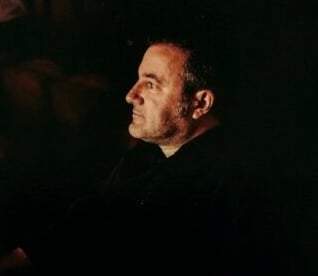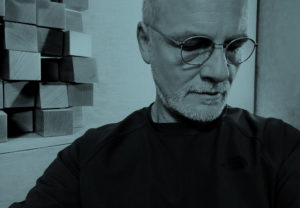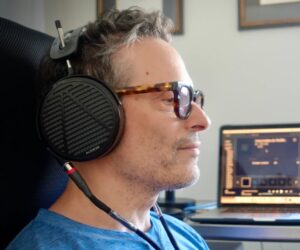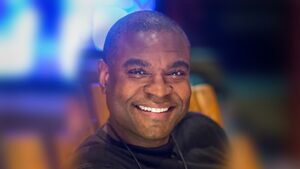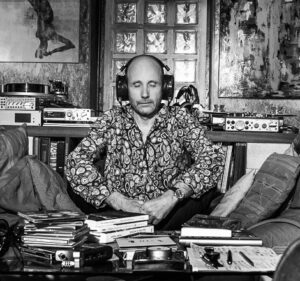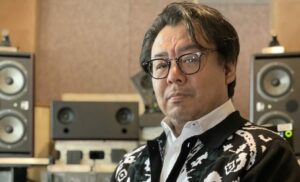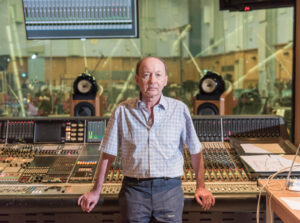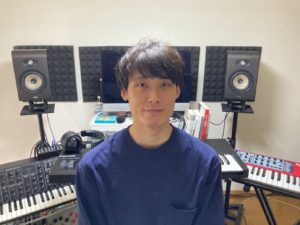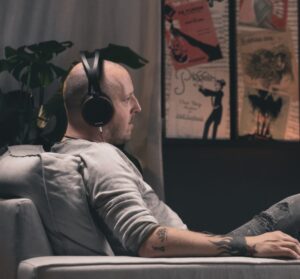Olivier was nominated at the Molière Awards in the “Best Visual Creation” category in 2014, and has helped create over 80 live shows. Among these are several operas in France and abroad including “Welcome to the Voice” with Sting, Elvis Costello and Ibrahim Maalouf at the Châtelet, for Carolyn Carlson in dance, and at the theatre for Philippe Adrien, Jacques Lassale, Didier Bezace, Alain Sachs and Alexis Michalik.
Interview
Olivier, how do you define your profession?
I’ve been a production designer and video creator for the performing arts – theatre, opera and dance – for over 25 years. I trained as a production designer at the start in the fairly classic sense of the term, I mean as a designer of sets and accessories, and then along the way I also became a video creator due to being drawn to it both artistically and technically. Video is now at the heart of most of the projects I work on. It lets you create mirages, a form of magic that switches in an instant from reality to dream and vice versa, from the realism of a scene, embodied by actors, to something suddenly more dreamlike. When it’s successful and used wisely, it enhances the show, giving it an extra dimension that can strengthen its purpose and dramaturgy.
What role does listening to music play in your life?
My work is always articulated through music or sound creation, and I often have the chance to work on shows where there’s an original musical and sound creation that allows real collaboration and interaction between me and the sound designer. It’s a back and forth between the two. The interaction can start from a visual idea I bring, from which the sound is created, or conversely, as in opera, from the music or a pre-existing theme, and my job is to identify moments when we want the two to interact. In these cases, I listen a lot, I soak up the music and the sounds to come up with the visual elements and videos that will produce the “right” effect, this play on both the rhythm and the atmosphere, whether in harmony or in counterpoint, which suddenly works without us always knowing exactly how to explain it.
“I heard lots of new things, patterns, harmonies, mixed-down instruments,
which I had the impression of discovering in music I thought I knew perfectly.”
How much attention do you pay to sound quality?
For a very long time, I’ve attached great importance to sound quality, in the sense that it carries the emotion of the music. I’m lucky to have plenty of concert experience. By the time I was 20, I must have seen more than 200 concerts, mainly classical. But it was when I was a teenager, looking for a replacement for my parents’ hi-fi system, which was starting to give up the ghost, that I first went through the door of a hi-fi store. I worked there at the weekend for 5 years! The manager was a real music lover before being an audiophile. He went to a concert every other evening. So I learned how to listen comparatively, to distinguish between upgrades, but always keeping in mind the objective of listening to the music, not the systems. Both the ear and the eye have their limits, but they’re senses that work very well in comparison, even for novices.
How long have you been using AudirvĀna? What did you think when you discovered it?
I discovered it fairly recently. I wanted to change my setup and as a friend had told me about it shortly before, I gave it a try. I quickly called him back to thank him, because I was sincerely amazed and delighted with the gain in quality. I heard lots of new things, patterns, harmonies, mixed-down instruments, which I had the impression of discovering in music I thought I knew perfectly. And these are details that add flavour, refinement, without any harshness. I have closed speakers, and I’ve also heard an improvement in the foundation of the bass, some extra “meat” in this part of the spectrum.
How do you rate listening from your computer with AudirvĀna compared with other equipment?
I wouldn’t necessarily ask myself the question in these terms. I just know that my system has improved with Audirvāna and now I use it as the main source.
Do you talk to people about it?
Yes. I discovered Audirvāna recently, but I’ve already talked about it with professionals I work with, a sound equipment store, etc.
What are your passions outside of music?
Images, but that’s my job. I could talk to you for hours about the evolution of digital images. But I also really like good wine. I don’t drink a lot, but I drink well! I take great pleasure in building and maintaining my cellar, choosing the right bottle for an occasion or dish, tasting it and sharing it with friends. There’s also an obvious link between music and wine. We could have fun playing a game matching the sequence of flavours and scents when tasting and the three-dimensionality of the music!

